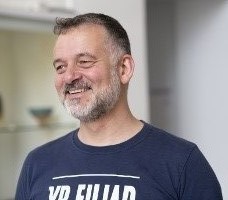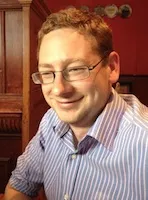Exploring Interdisciplinarity Case Studies
Workshop facilitated by Nat Rodrigues. Special guests: Naomi de la Tour, Mark Hinton and James Kermode (for more details scroll down to the end of the page)
In an increasingly complex world with ever more challenging problems to solve, pursuing interdisciplinary research which joins ideas from different fields has long been recognised as an important endeavour. As the value of combining knowledge and bringing together people who address problems from different perspectives becomes more and more apparent, both in academia and industry, the demand for interdisciplinary problem-solver professionals rises. To meet these demands – and given the pedagogical advantages of doing so – the higher education sector is turning its attention and efforts to providing and fostering interdisciplinary teaching and learning, thus aiming to educate the interdisciplinary graduates of the future.
‘Interdisciplinarity’ has, therefore, become an educational ‘buzz-word’ with which academics are regularly bombarded, and not solely regarding their research anymore – they are encouraged (if not expected) to embed it into their teaching. The concept of interdisciplinarity now features in the educational strategies of multiple higher education institutions, Warwick’s included.
But what does ‘interdisciplinarity’ mean? What does it look like? What benefits and/or success has it really been shown to create? And, importantly, how can it be embedded in regular ‘departmental’ modules and what can academics do to foster it?
This workshop will focus on these and other questions to explore what the audience and the speakers understand interdisciplinarity to be, and to stimulate meaningful discussions around the subject. Invited speakers will present their own interdisciplinary projects and share with the audience what interdisciplinarity means to them and why they pursue it. This workshop is open to all who are interested in the topic, but it will likely be more valuable to those with module and course design responsibilities who are in a position to seek interdisciplinary opportunities.
Date: Wednesday 31st October 2018
Time: 14.00-16.30
Venue: Social Sciences S0.09
Booking form
Feedback form
Guests and their case studies
Naomi de la Tour: 'Stimulating interdisciplinary imaginations'
 Naomi is a Teaching Fellow at the Institute for Advanced Teaching and Learning (IATL) and a Senior Fellow of the Higher Education Academy. She has a particular interest in the imagination, interdisciplinarity, sustainability and playful assessment design. She developed and convenes the IATL interdisciplinary modules Applied Imagination: Theory and Practice and The Long Project and convenes Ethical Beings. In 2015 Naomi received the Butterworth Warwick Award for Teaching Excellence (WATE). From 2014-2017 Naomi was the Director of Undergraduate Studies for IATL. More information.
Naomi is a Teaching Fellow at the Institute for Advanced Teaching and Learning (IATL) and a Senior Fellow of the Higher Education Academy. She has a particular interest in the imagination, interdisciplinarity, sustainability and playful assessment design. She developed and convenes the IATL interdisciplinary modules Applied Imagination: Theory and Practice and The Long Project and convenes Ethical Beings. In 2015 Naomi received the Butterworth Warwick Award for Teaching Excellence (WATE). From 2014-2017 Naomi was the Director of Undergraduate Studies for IATL. More information.
Mark Hinton: 'Building Interdisciplinary Engagement, and Community'
 Mark is the Community Engagement Development Manager for the Centre for Lifelong Learning (CLL), working with the third sector to raise awareness of opportunities for adult learners at the University of Warwick, to build long-term relationships between the University and communities across the region, and to encourage and facilitate good practice in University-Community Engagement within Warwick. He teaches Developing Community Leadership in a variety of community settings, and convenes the UG module, Community Engagement: Theory into Practice, developed with an Academic Fellowship from IATL. He also co-leads a CLL module on Race, Power and Community. More information.
Mark is the Community Engagement Development Manager for the Centre for Lifelong Learning (CLL), working with the third sector to raise awareness of opportunities for adult learners at the University of Warwick, to build long-term relationships between the University and communities across the region, and to encourage and facilitate good practice in University-Community Engagement within Warwick. He teaches Developing Community Leadership in a variety of community settings, and convenes the UG module, Community Engagement: Theory into Practice, developed with an Academic Fellowship from IATL. He also co-leads a CLL module on Race, Power and Community. More information.
James Kermode: 'Interdisciplinary Computer Modelling'
 James is an Associate Professor (senior lecturer) in the Warwick School of Engineering, associated with the Warwick Centre for Predictive Modelling, and he is a Fellow of the Higher Education Academy. James teaches a number of modules within the School of Engineering as well as convening the Interdisciplinary Computer Modelling IATL module. This module teaches problem solving on a computer in a variety of disciplines, including not only the natural and mathematical sciences but in particular also social sciences, humanities and the arts. The module focuses specifically on problem solving as opposed to the fine details of computer programming. This module provides training in practical computing skills using the state-of-the-art high-level scripting language Julia and general transferrable skills training. In addition, the module provides a stepping-stone towards further study of scientific computing. More information.
James is an Associate Professor (senior lecturer) in the Warwick School of Engineering, associated with the Warwick Centre for Predictive Modelling, and he is a Fellow of the Higher Education Academy. James teaches a number of modules within the School of Engineering as well as convening the Interdisciplinary Computer Modelling IATL module. This module teaches problem solving on a computer in a variety of disciplines, including not only the natural and mathematical sciences but in particular also social sciences, humanities and the arts. The module focuses specifically on problem solving as opposed to the fine details of computer programming. This module provides training in practical computing skills using the state-of-the-art high-level scripting language Julia and general transferrable skills training. In addition, the module provides a stepping-stone towards further study of scientific computing. More information.
Facilitator
Nat Rodrigues

Natércia Rodrigues was a postgraduate student at the University of Warwick from September 2014 to March 2018 under the supervision of Professor Vasilios Stavros in the Department of Chemistry. Her thesis focuses on obtaining a comprehensive understanding of the ultrafast photodynamics of sunscreen molecules in an effort to inform their rational molecular design towards optimised photoprotection.
Throughout her postgraduate studies, Nat was heavily involved with teaching undergraduate students and became an IATL Academic Fellow in August 2017 for the development of an undergraduate chemistry experiment based on her research.
During her time as a PhD student, Nat also completed the APP PGR programme offered by the Learning and Development Centre and completed a Postgraduate Award in Teaching and Learning in Higher Education. Nat has also worked as an Academic Developer with the Learing and Develoment Centre (Teaching and Learning Unit).
From the 1st of October 2018, Nat will be a IATL/IAS Early Career Fellow, splitting her time between scientific research with the IAS and the Department of Chemistry, and interdisciplinary teaching with IATL.
